This specific recruitment is for a senior-level tenure track faculty position within the SCI Institute as part of a new faculty Cluster in Computational Oncology (CCO). Advanced computing, data science, imaging, and visualization are central to solving fundamental problems in cancer research and care. CCO is a highly innovative collaboration between Huntsman Cancer Institute, the University of Utah’s Comprehensive Cancer Center and the Scientific Computing and Imaging Institute at the University of Utah. Together we leverage our internationally renowned research strengths to make lifesaving advances in the prevention, detection, diagnosis, and treatment of cancer.
Initial hires as part of the CCO will consist of two senior positions, including 1) the Senior Director for Data Science at Huntsman Cancer Institute in the Department of Oncological Sciences (hired in 2022) and 2) this position, a Computational Oncology leader within the SCI Institute. The academic home will be within a department in the College of Engineering, Medicine, or Science. These two senior hires will be followed by multiple junior faculty positions.
For the Computational Oncology leader position, the SCI Institute is looking for an established researcher at the Associate or Full Professor level in an area that aligns with SCI’s core research thrusts, i.e., scientific, information, and biomedical visualization, image and data analysis, and interdisciplinary scientific computing, with demonstrated leadership in applications to Oncology. Candidates whose research expertise integrates social and technical aspects are of particular interest, as are candidates who can contribute to the University’s diversity. The successful candidate is expected to help coordinate joint initiatives, proposals, and faculty recruitment between the SCI Institute and HCI including the Computational Oncology Research Initiative (CORI) and other Cancer Informatics initiatives. The faculty member is expected to become a Cancer Center member, and as appropriate, may be considered for an adjunct position in the Department of Oncological Sciences.
All candidates are invited to submit a curriculum vitae, a cover letter containing a description of professional experience (including scientific accomplishments, leadership responsibilities and 3 references), a research plan (up to 3 pages), teaching strategy (up to 1 page), and a statement of past, present, and future commitment to equity, diversity and inclusion (up to 1 page) to the University of Utah HR. Applicants should describe their vision for interdisciplinary, computational oncology research leadership within the context of the SCI Institute’s mission of multidisciplinary bridge building (http://www.sci.utah.edu/the-institute/bridges.html), especially collaborations with researchers within the Huntsman Cancer Institute.
You can apply to this position here
For additional questions, please contact Chris Johnson (
About the SCI Institute
Over more than two decades, the SCI Institute has established itself as an internationally recognized leader in translational innovations across computational and data science with leading research and training programs in the areas of visualization, scientific and biomedical computing, and image analysis applied to a broad range of challenging problems. For example, the SCI Institute is ranked by CSRankings (http://csrankings.org) as housing the top visualization and High Performance Computing group internationally. Alongside its research goals is a passion to educate students and staff. The SCI Institute is proud to have supported over 400 graduate students and postdoctoral fellows and nearly 100 undergraduates to achieve an education at the cutting-edge of research. SCI graduates move into faculty positions with universities internationally and become innovators with companies such as Apple, Exxon Mobil, Nvidia, Google, Intel, Boston Scientific, Orthogrid, Philips Medical, and Medtronic. Additional information about the Institute and current faculty can be found at http://www.sci.utah.edu.
The University of Utah is a Carnegie Research I Institution and member of the Association of American Universities (AAU); the SCI Institute is a trans-college, research-focused partnering entity at the University of Utah consisting of faculty from 4 academic units in 2 colleges along with students, and staff (185 current personnel). The SCI Institute’s vision is to see applied computing bring transformation across disciplines in a way that benefits the University of Utah and society at large. Its mission is to bring together excellence in diverse domains applied to multidisciplinary and interdisciplinary problems of societal importance. The Institute accomplishes these goals through the collaborative development, assembly, and/or application of applied scientific and data computing, imaging, and visualization tools.
About the University of Utah
The University of Utah is in Salt Lake City, the hub of a large metropolitan area with excellent cultural and recreational opportunities. Utah and the stunning Salt Lake Valley are undergoing robust economic growth with one of the nation’s fastest-growing technology sectors; the University of Utah is acclaimed for its successes in technology-driven start-ups. The University has invested significantly in the SCI Institute and substantial further investments are now enabling these recruitments.
